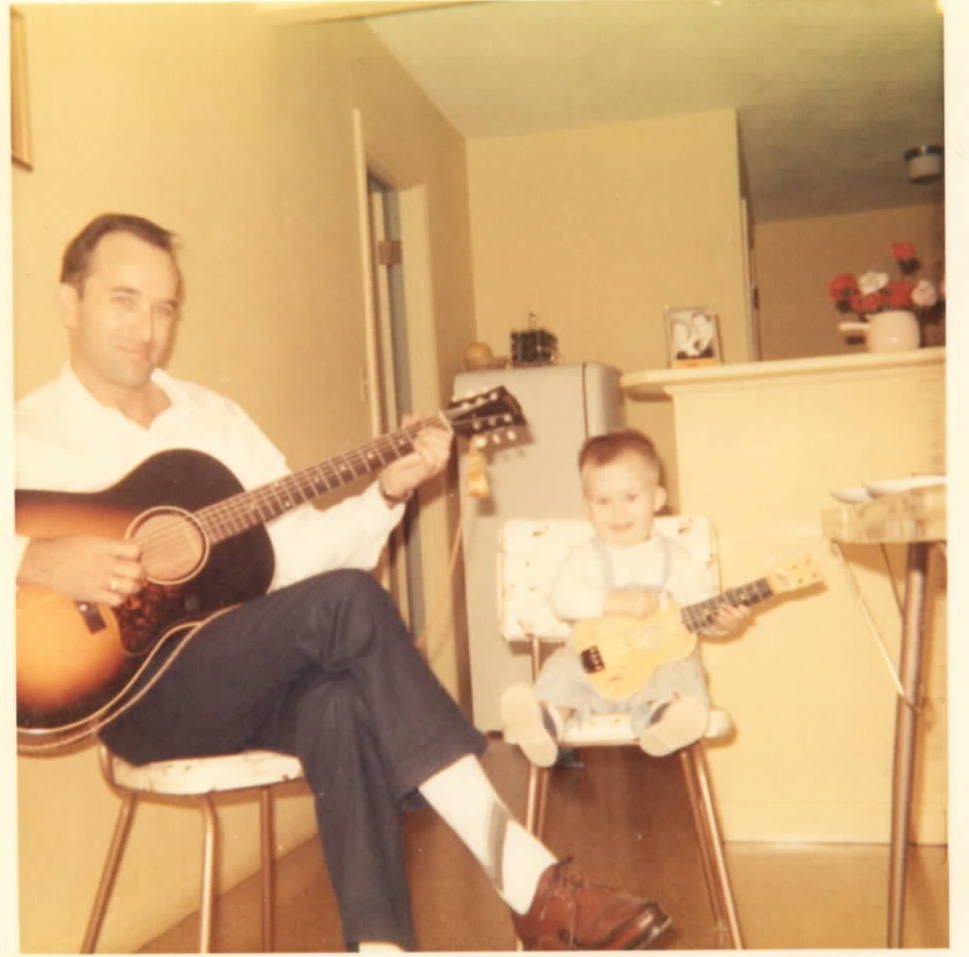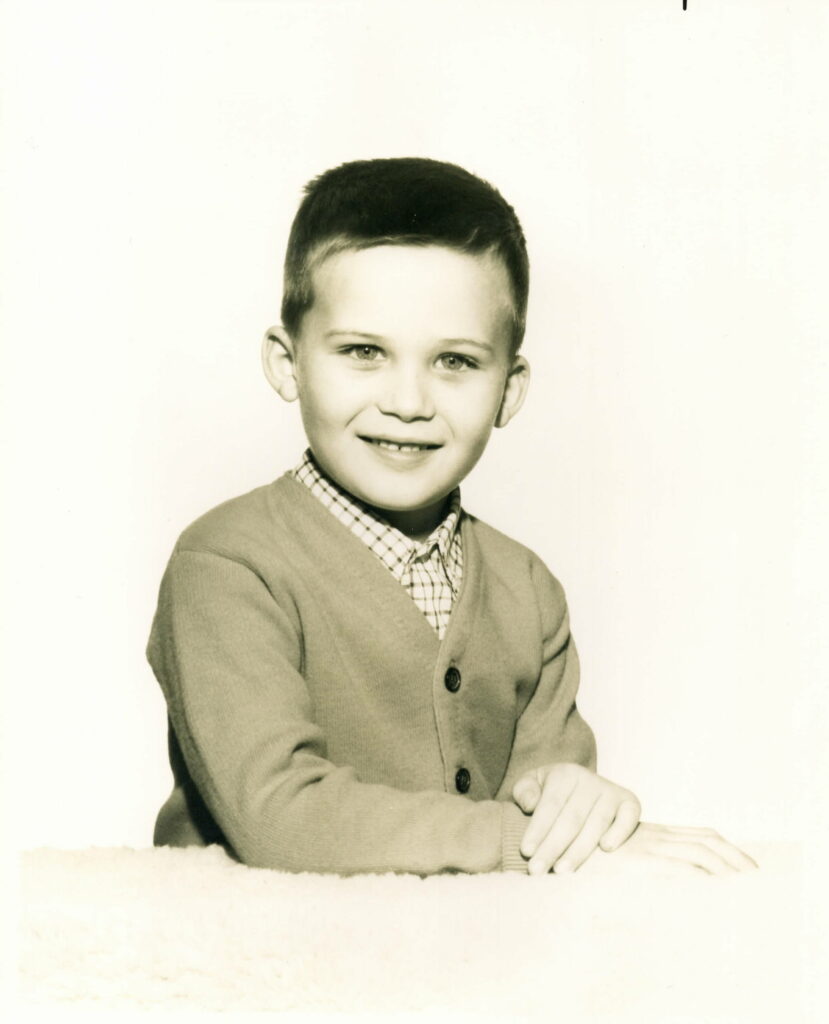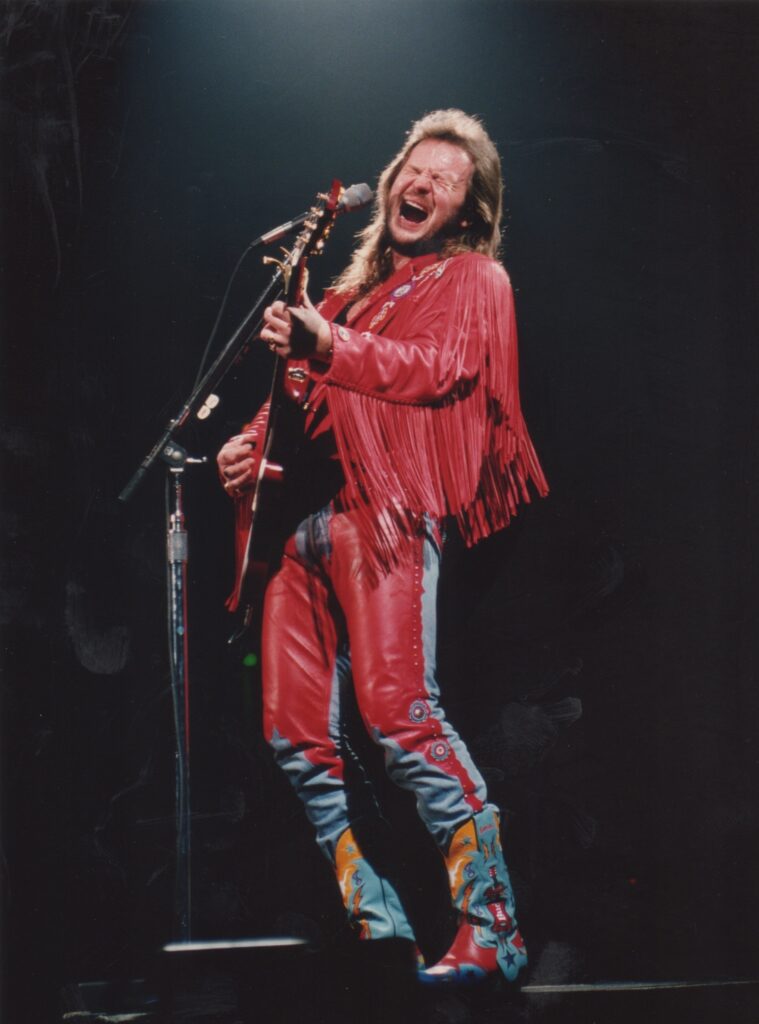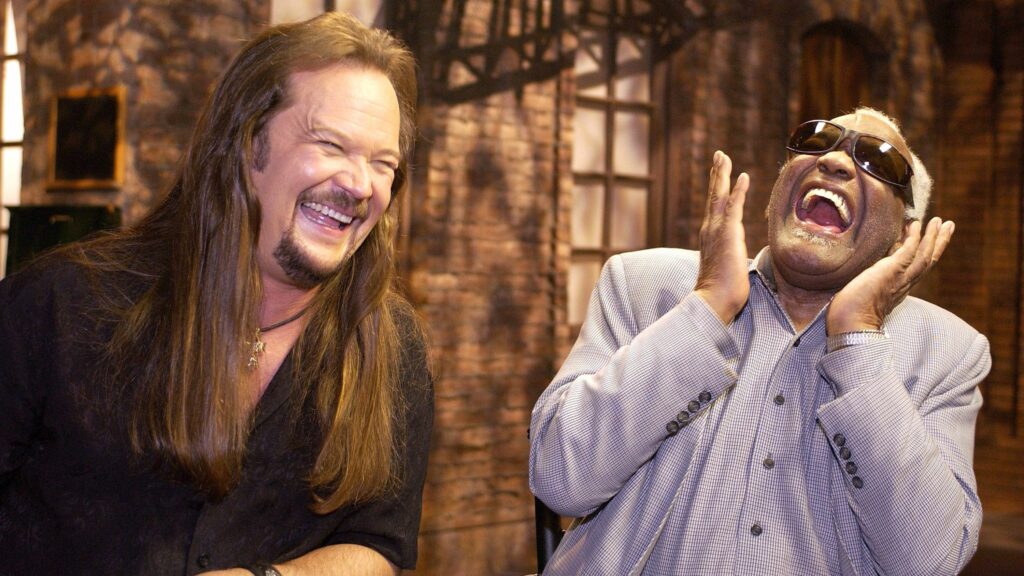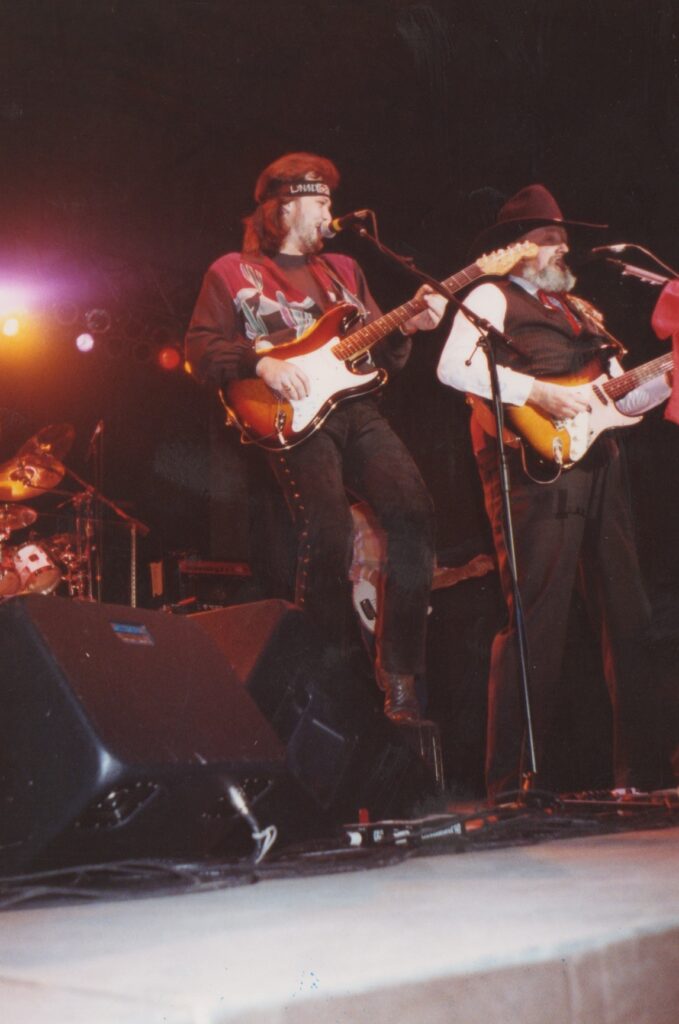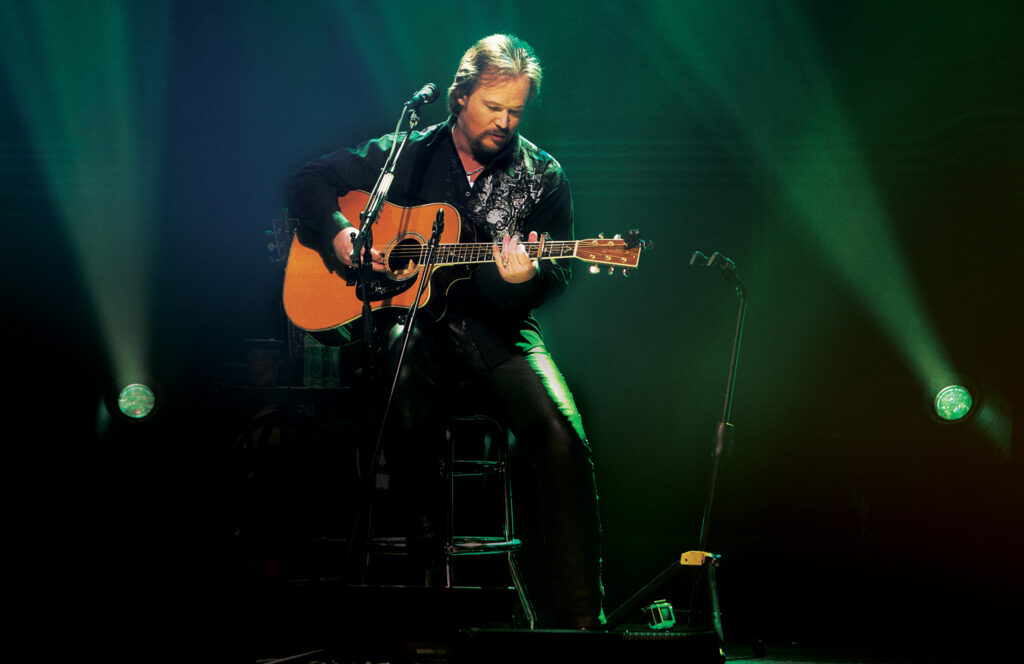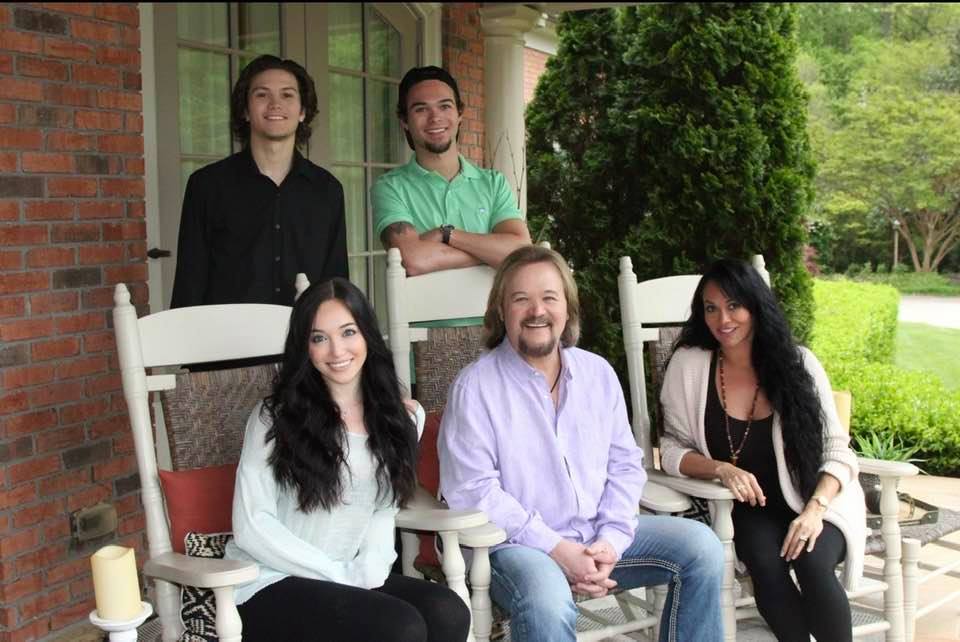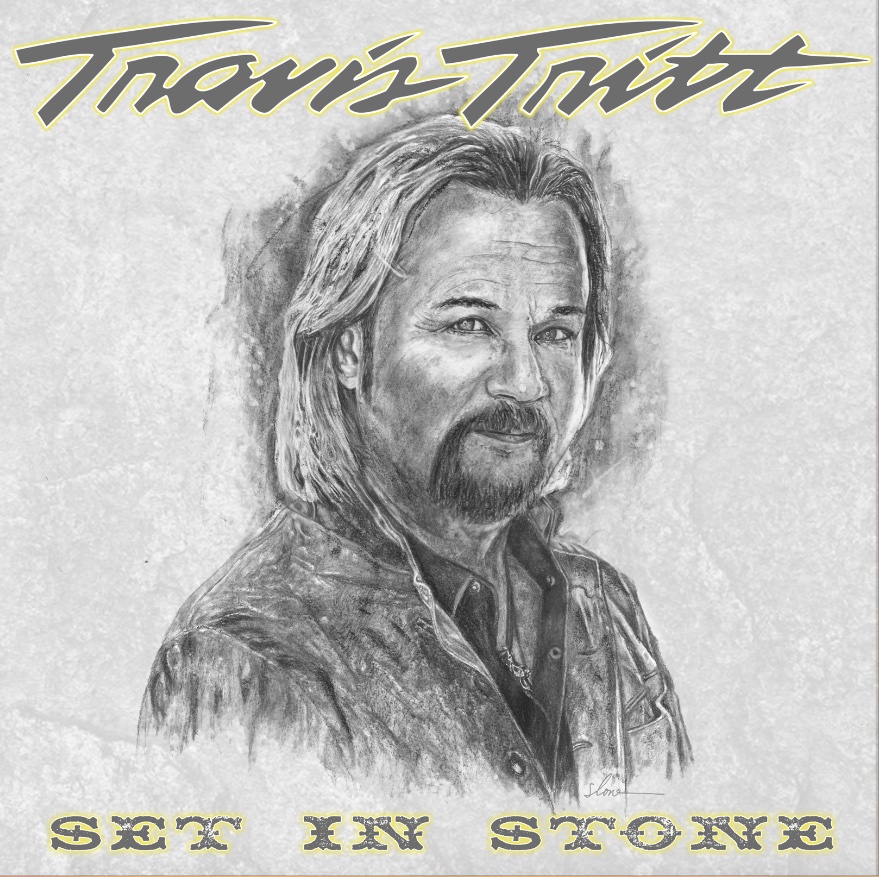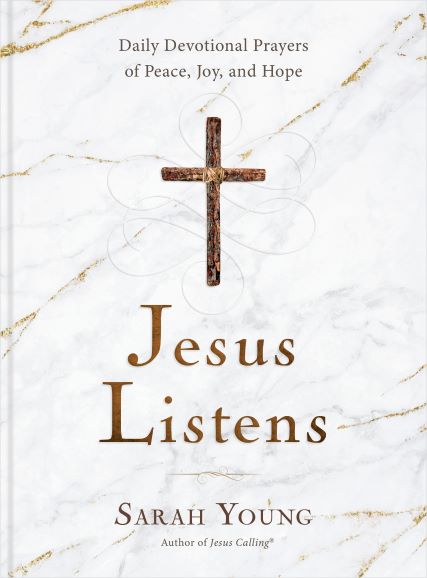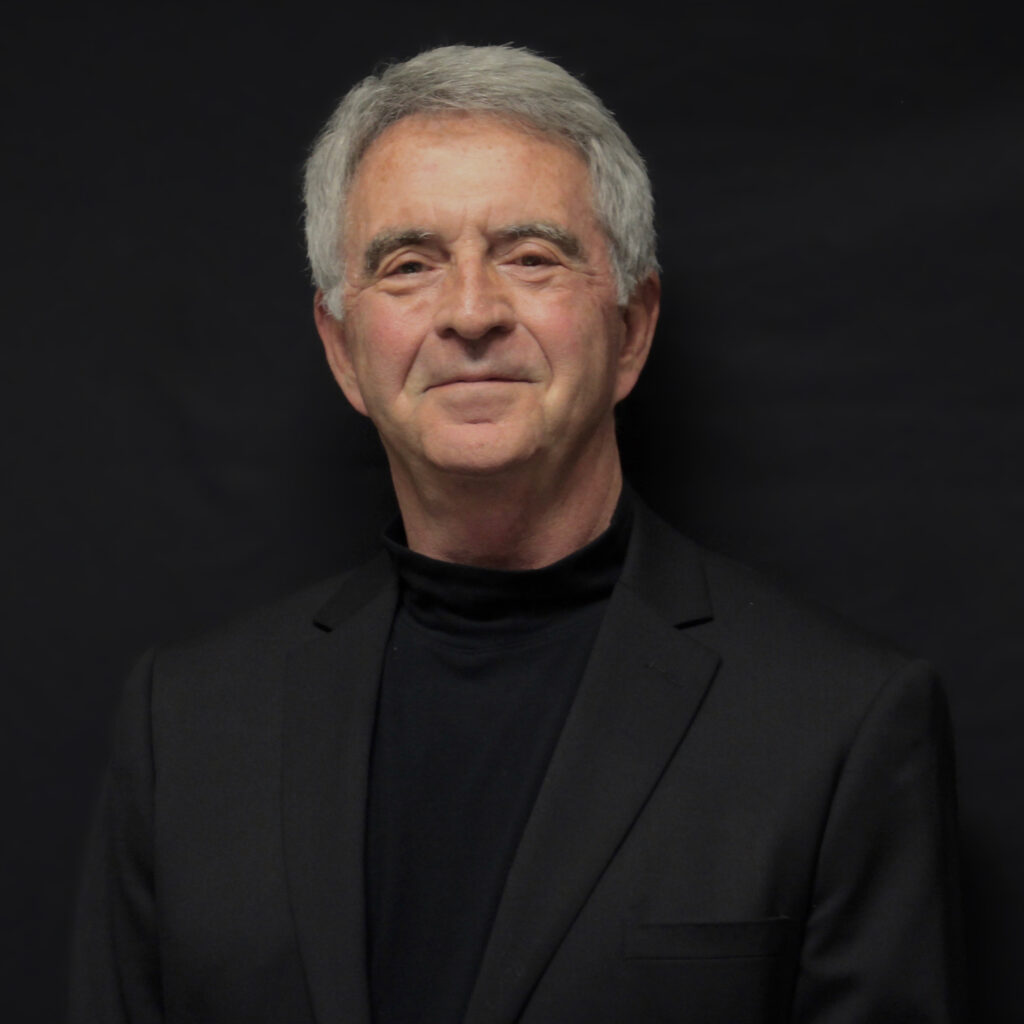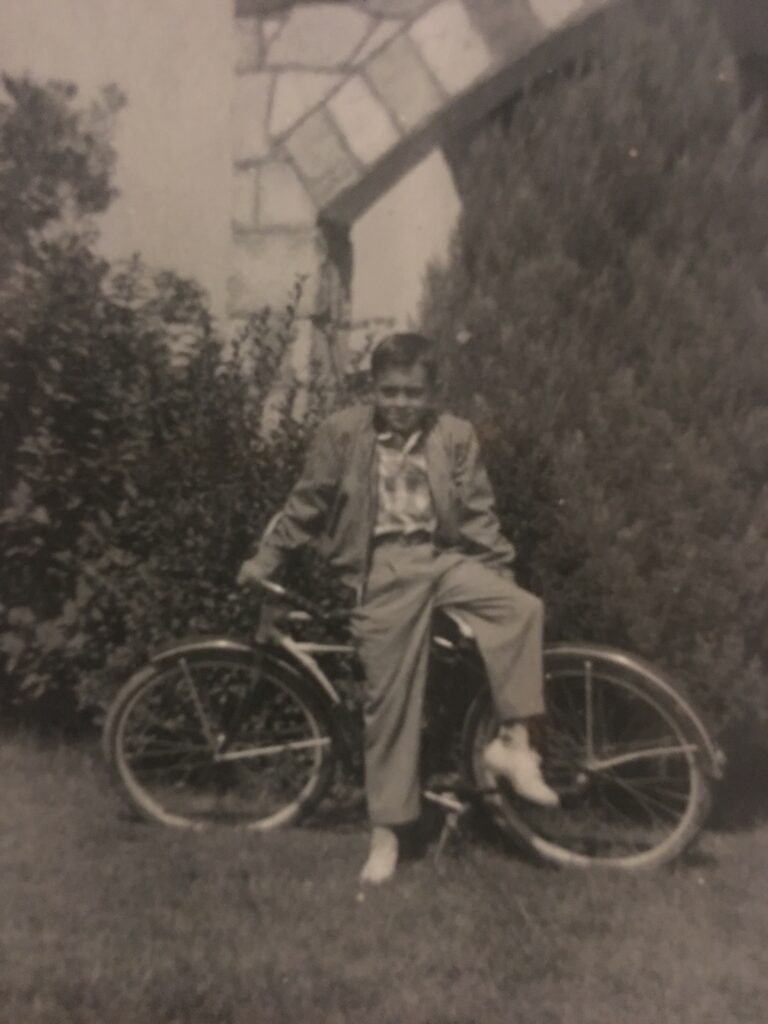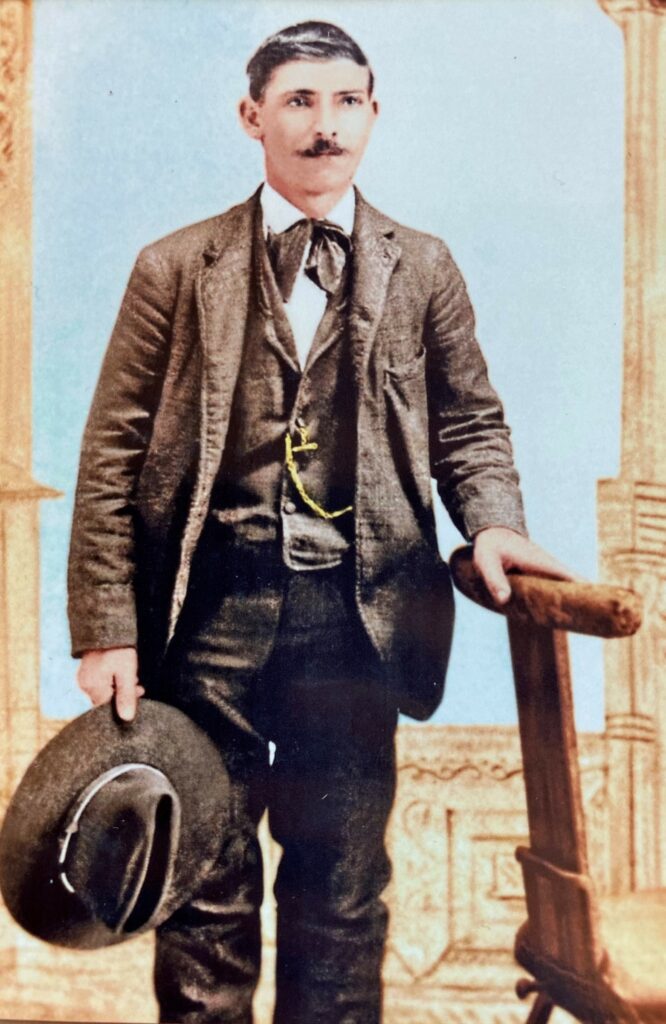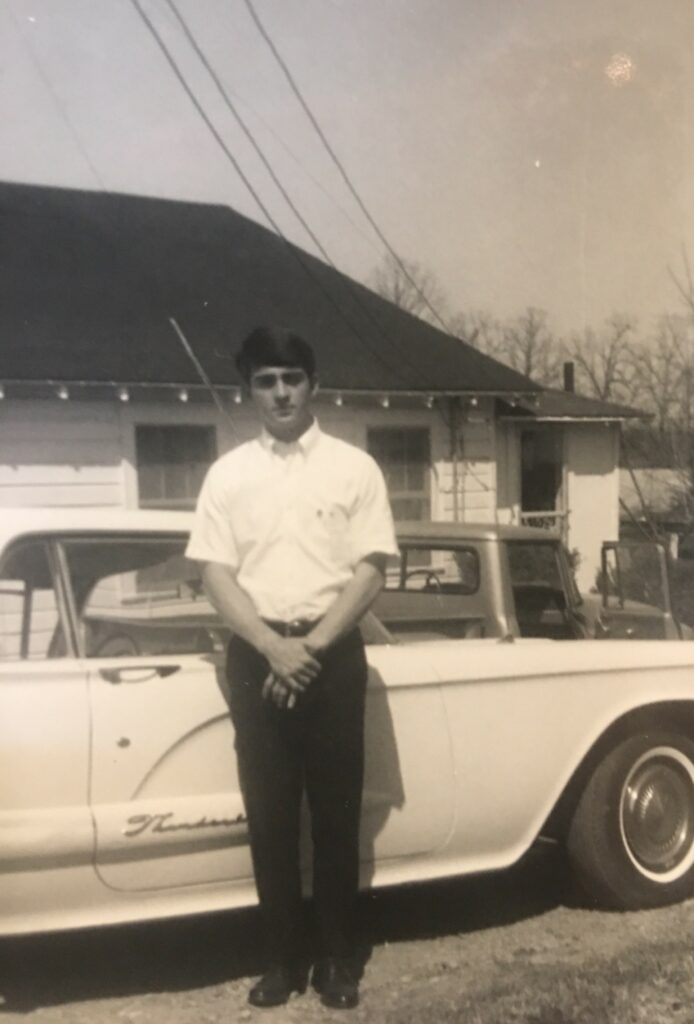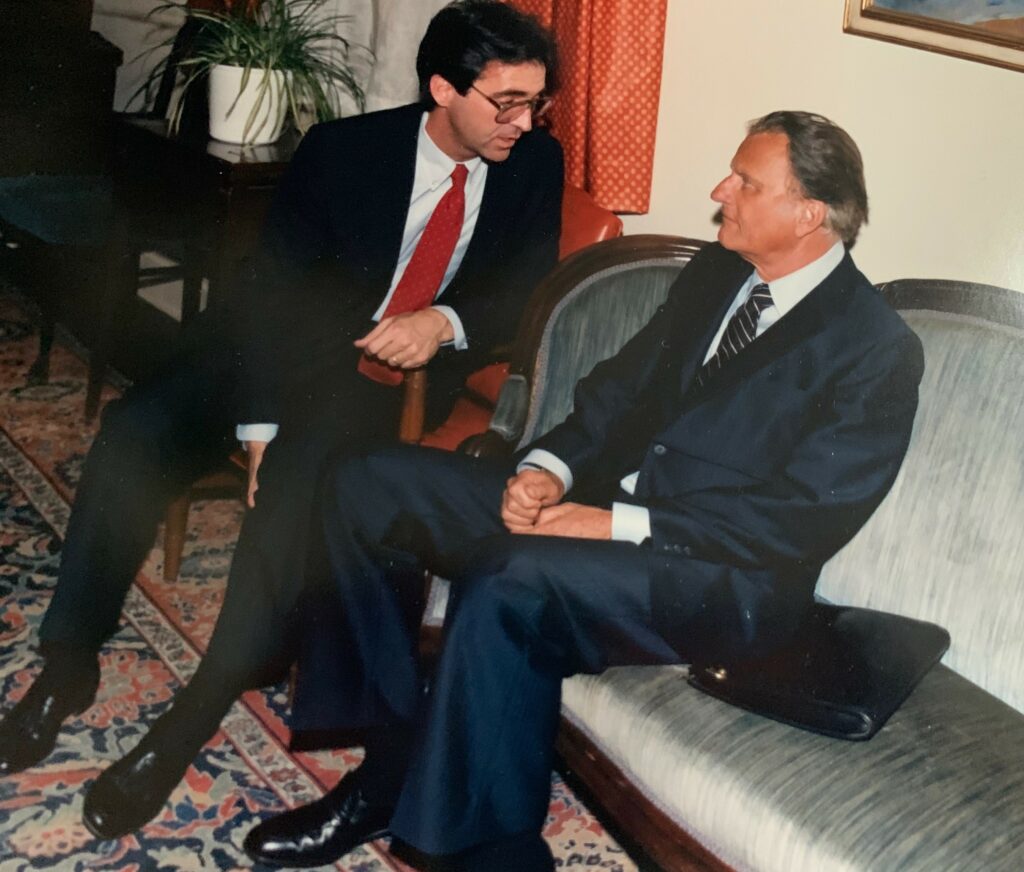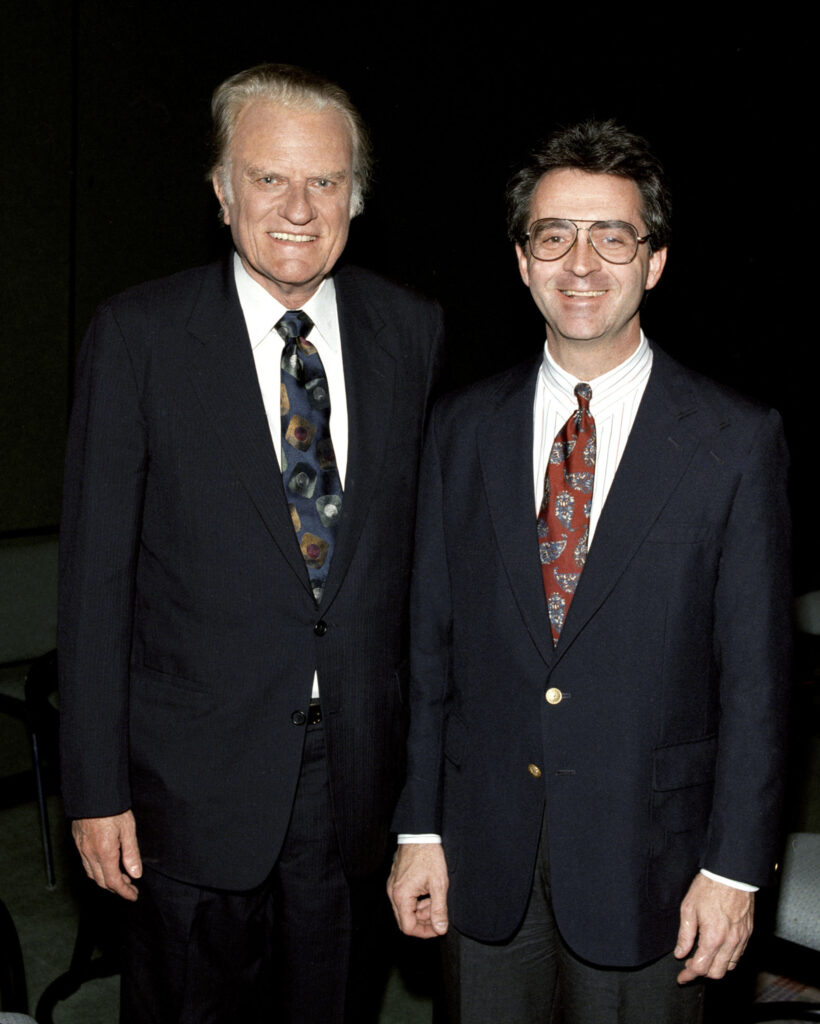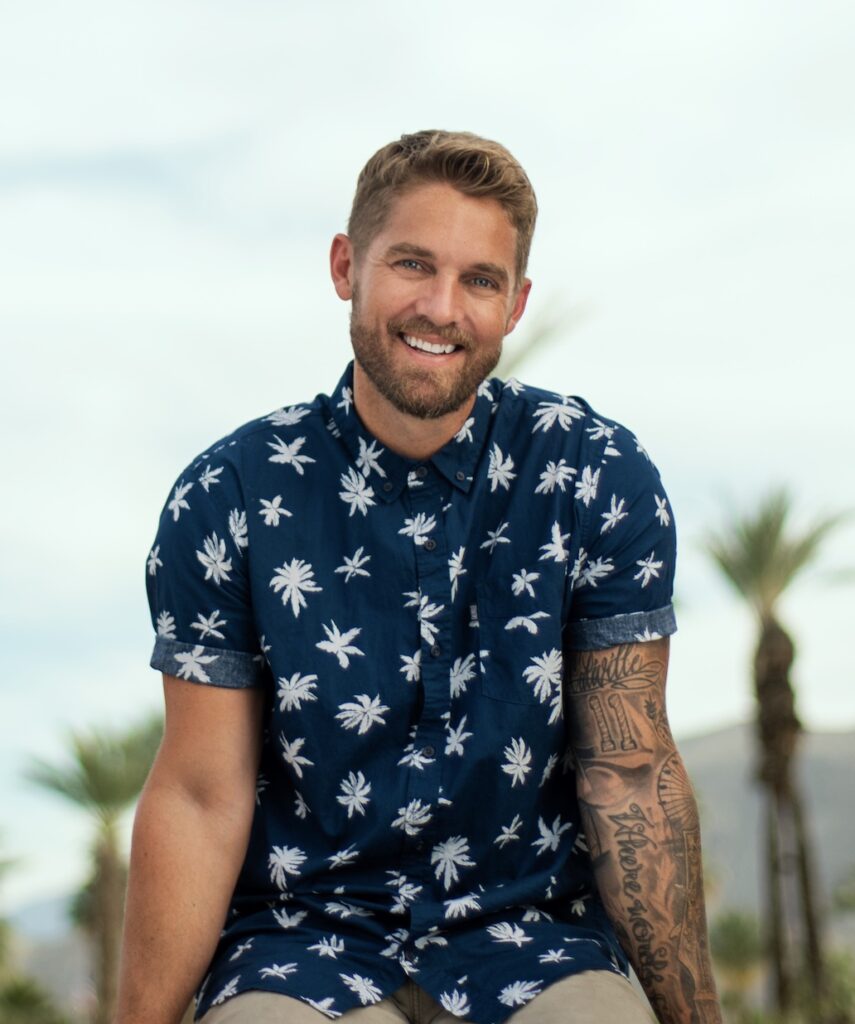Wherever God Leads, I’m Going: Travis Tritt & Tom Phillips
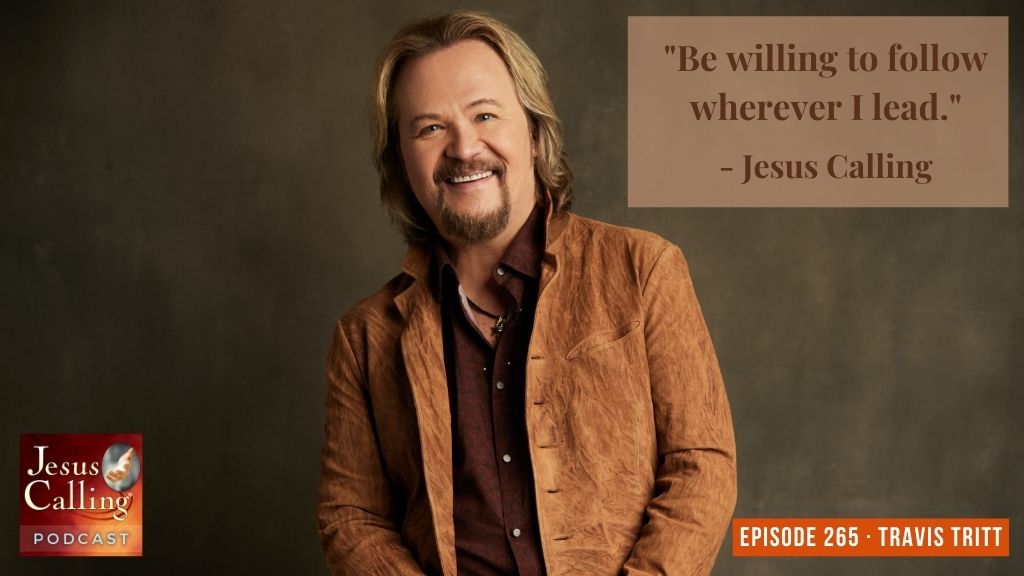
Travis Tritt: The power of prayer is extremely strong. I believe in it 100 percent. I know what it’s capable of. I know what God’s capable of. And if we bring those things to Him in prayer, He will not leave us and He will not forsake us.
Wherever God Leads, I’m Going: Travis Tritt & Tom Phillips – Episode #265
Narrator: Welcome to the Jesus Calling Podcast. Finding our way in life can be challenging, overwhelming, and discouraging. The path may seem clear at times, and then others, we feel pushed in a direction that may not feel comfortable or familiar. The only thing that we can trust is that God will show us the way and we must step out in faith to find our purpose. Travis Tritt, a wildly popular 90s country star, thought he had his life mapped out in his hometown of Marietta, Georgia, managing the family air conditioning business. Tom Phillips, a pastor who worked with the Billy Graham Evangelistic Association as a crusade director, studied medicine in college. Both men were led to follow dreams that seemed out of reach, but God had their futures in mind the whole time.
We’ll start with Travis’ story.
Travis Tritt: I’m Travis Tritt. I am a country music, singer, songwriter, entertainer, and musician.
I was born and raised in Marietta, Georgia, where I still live, happily married for twenty-four years, been with my wife for twenty-seven [years]. Father of three, and just extremely, extremely happy to be doing what I do for a living.
Growing Up on Country and Gospel
Growing up in Marietta, Georgia was a great place to grow up. Back in those days, it was small-town USA. For example, we lived on a road that was about three miles long, and there were four houses on the whole road. So if you sat on your front porch, and you knew you had company coming over, if you heard a car coming, that’s definitely going to be your company, right? It was just a great place to be, a great place to grow up, a great place to interact with people. And no place else that I’ve ever been on this planet has ever felt like home the way that Georgia has. And that’s one of the reasons I never moved.
As a kid, I just loved music as a whole. I got started with gospel, singing in church. But as I got older, I started listening to a lot more country music. My father, on Saturday nights—we had a radio at our house. We had a television like everybody else, but we also had a radio. And on Saturday nights, we hardly ever turned the television on. My dad would come home from work on Saturday, and weather permitting, he would set up these lounge chairs out in our front yard and set up a radio, and we would go outside and listen to the Grand Ole Opry on Saturday night. And some of my earliest memories of falling in love with country music and country music artists came from listening to that program.
My mother and sister and I were in church every single time the doors were open. We went to the Marietta Assembly of God. We were in church Sunday morning, Sunday night, Wednesday night. If revival was there, we were there Monday, Tuesday, Wednesday, Thursday, Friday. I grew up with the understanding of what God meant to my family’s life, to my life. We had Bible study on a regular basis. It was a great place to build the foundation for the rest of your life.
“I grew up with the understanding of what God meant to my family’s life, to my life. We had Bible study on a regular basis. It was a great place to build the foundation for the rest of your life.” – Travis Tritt
Even though there were times when I strayed way away from it, it was always something that was in the back of my mind, in the back of my heart, even during those times. And every time that I ever had any kind of issues or worries or concerns or whatever it might be, I found that I could unload those things in prayer, and that really, really has been something that’s been special to me throughout my entire life. I still don’t worry about things very much because I know that any time something comes up that is concerning to me or whatever, I don’t have to carry that burden alone. That is so freeing as an individual, to be able to just take it to God in prayer and not just take the burdens there and then pick them back up and walk away with them. I can take them there and leave them there. And that’s extremely freeing. I just don’t worry about things anymore. And it’s all because of the teachings that started in that little church in Marietta, Georgia.
“Even though there were times when I strayed way away from it, it was always something that was in the back of my mind, in the back of my heart.” – Travis Tritt on his faith
The first time that I ever sang for anybody in public, we had a children’s choir in the children’s church back when I was very, very young, six, five, six years old. And we rehearsed the song, which was a new song at that time: “Everything Is Beautiful,” the old Ray Stevens song. And they chose me to sing the solo parts. And man, I was nervous as a long-toed cat in a room full of rocking chairs. We rehearsed it for weeks. And then finally we had an opportunity to go up to what we referred to as “big church,” the adult church, and perform that song for the adult congregation. And I think that’s probably where I got bitten by the bug. I just realized that that was something that I wanted to continue doing, even though I didn’t pursue it as a career for many, many years later. But I knew right then that it was something that I wanted to do.
Choosing to Chase My Dreams
When you were growing up in those days, you had basically one of two choices. When you graduated from high school, you either went to college, which wasn’t an option for me, or you got married and went to work. I chose option B. I got married right out of high school, went to work for a heating and air conditioning wholesale company. I pretty much thought that I was going to make a career out of that. You know, that’s pretty much what I wanted to do. I had a band that would occasionally play the Christmas party or a wedding anniversary party or, you know, something like that. But we weren’t working very much.
I walked into this club one night very close to my house. It was a little bar-restaurant. And there was one guy up on stage, upon the platform with just an acoustic guitar and a drum machine. And I sat and listened to this guy for about, I don’t know, an hour or two. And I thought, I can do that job, I can do that. And sure enough, I got to know him very well and a few months later he decided he was going to come to Nashville to try to pursue his own musical dreams. And as soon as he left, I went to the manager of that club and I said, “I want that job,” and I got it.
So I did both jobs for a while and it nearly killed me, but I was young and I could handle it, you know. And after a while, I realized that I was having more fun at my night job than I was at my day job. And I also realized, oddly enough, that I was making more money at my night job than I was at my day job. So I wrestled around with the idea of just pursuing it full time for several months.
Finally, I went to my father, my boss, who was the vice president of the company. And I said, “Listen, I’m really struggling with the idea.” I said, “I’ve got an opportunity to pursue this career in music. But I’m afraid because I’ve only got bookings at this one place and after those bookings run out, I don’t know where the next bookings [are] coming from. And I obviously don’t know where the next paycheck is coming from.”
He was an old guitar player who was really good. As a matter of fact, at one point, he’d been offered an opportunity to go out on the road with Carlos Santana, and he turned it down because it was a family business. And he told me how much he regretted that decision and that he said, “Look, I encourage you to do it. Go do it, chase your dream, because I’m going to be an old man one day and I’ll be sitting in my rocking chair on the front porch wondering whether or not I could have made it in this business.” He said, “You go pursue that dream. If it doesn’t work out, your job here is safe.”
So that was all I needed. That was the kick out of the nest that I needed. And I started going out and playing shows and I never looked back.
I’ve been blessed in so many ways. I mean, I’ve had the opportunity to work with just about every single one of my heroes that I ever had—not just get to meet them and talk with them, but get to actually work with them and play concerts with them, record with them. I had the opportunity to work with Ray Charles, who was probably the most influential person on what comes out of my mouth when I sing than anybody on the planet. I had the opportunity to work with the Eagles back at a time when they had been on a fourteen-year hiatus. And I did an album called Common Thread, which was a tribute to the Eagles and all the country music artists of the day participated in that. I’ve worked with so many great people over the years, and it’s just been more than I ever imagined when I first got started. I mean, you certainly dream about it, but I’m one of those people who can look back and say, honestly, my dreams have more than come true.
“I’m one of those people who can look back and say, honestly, my dreams have more than come true.” – Travis Tritt
A Country Music Mentor in Charlie Daniels
I released my first single in August 1989. And that December, we’re playing at the National Finals Rodeo. All of the casinos around the National Finals Rodeo featured country music artists for that entire week. And Charlie Daniels was playing at the Sands Hotel, where the Rat Pack, all those guys had performed for years. It’s no longer there now. But he was doing a week of shows, and he booked me to open those shows. I was so brand-new that I mean, they didn’t put our name on the marquee. They stuck us literally in a broom closet for a dressing room.
The first night before the show, Charlie came down and he just popped his head in the door and said, “Hey, y’all, I’m Charlie. I just wanted to welcome y’all and say I’m so glad to have you here.”
And he looked in the room and he said, “What is this room they’ve got you in?”
And I said, “Well, it’s our dressing room, sir.”
And he walked down the hall. He said, “Y’all wait one minute, I’ll be right back.” And he walked the hall, and five minutes later, he came back and got us, and he pulled us into his dressing room, which was huge. And he said, “This is my dressing room. And from now on, it’s your dressing room, too.”
The advice that he gave me, after that whole week of shows, I watched every night when I was on stage, and I could look to the left and on the side of the stage, all I could see was a silhouette of that big hat that he wore. And he came out and watched me every single night and from beginning to end. And at the end of the week, he pulled me to the side and he said, “Listen, I’ve been watching you every night. I’m just impressed. I love watching what you do with an audience. I love watching you perform. I love the songs you’re doing. I love the songs you’re writing, the style that you play.” And he said, “I think you’re going to have a career in this business for as long as you want one. I know that if you’re brand-new in this business that it can be difficult to navigate. Sometimes you feel like you’re in a stormy sea with no compass. I’m not the smartest guy in the world, and I’ve never claimed to be. But if there’s any way that I could be of any help to you or give you any advice or any assistance, or if you just have some questions or if you just have somebody that you just want to talk to about anything that’s going on, here’s all my numbers.”
I would say that ninety-nine percent of everything that I know about the business side of the music business, I learned from Charlie Daniels. He was truly one of my heroes. And I miss him so much every single day. But I love him and I know that he’s in a better place. I just thank him so much for all of the things that he taught me and more than that for just being such a good friend, more than a friend, a father figure to me.
My Legacy Is Set in Stone
Twelve, thirteen years ago, I really wanted to just focus just on live performance, even though I hadn’t recorded an album in that period of time. I played shows, I played on average about 135 shows a year every single year. So I’ve never gone away. I’ve just always put my focus for the last thirteen years on the touring and the live performance part of it. And going back in and doing an album, was a little bit nerve-wracking for me because I know that a lot of things have changed in the industry as far as how people record music, how they approach it. Plus, I was working with a lot of first-time songwriters I had never written with before.
But one of the first songwriters that I wrote with was a guy named Brent Cobb. And Brent came to me with this concept. He said, “I was thinking about how much your music meant to me when I was growing up and riding around, listening to it with my daddy and my granddaddy. And then I went to see you in concert when I got a little bit older.” He said, “Your career and your legacy are pretty much set in stone. And I was thinking about that, set in stone, set in stone. I would love to write a song about that,” but he said, “I’d like to make it more universal so that it applies to just about anybody that can look back over their life and find something that they’re proud of. And that can be something as simple as just raising a family or providing for a family, keeping a roof over their head, keeping food on the table for your family. Or it could be something like keeping your family farm up and running or maybe starting a business and growing that business over the years. Anything that you can look back on as you get older and say, ‘You know what, I’m proud of that. I’m proud of that.’ That’s your legacy,” and so we started thinking about how we could write that song, and it just turned out, I’m so, so happy with the song.
I think the thing I want to be remembered for is “this is a guy that just absolutely loved what he did for a living. First of all, he loved people. He loved music. He loved entertaining. He loved being on stage more than anything on the planet. And he always gave 100 percent all of the time because he loved it that much.”
Counting My Blessings
I am a big believer in counting your blessings. So my prayers start off each night with thanking God for all my blessings. And like the old song says, you know, count your blessings and name them one by one. I do that every single night when I pray. I thank God, first of all, for my health. I thank Him for my family. I thank Him for the protection that He’s provided for me over the years, keeping us out of harm’s way. I thank Him for salvation. I thank Him for the talent that He blessed me with. I don’t know why on earth He chose me, but I’m so thankful for it. And not only the talent that He blessed me with, but also the ability to be able to use that talent to go out and entertain people, to make people smile and forget their troubles for a little while, or lift people up or take them on a journey in their mind or their spirit and be able to not only do that, but to be able to use that to make an extremely good living for me and my family members. All of those are blessings. And they came from one place and that’s God. I know those things happen from heaven without a shadow of a doubt. So I thank God for those things every single night.
“I am a big believer in counting your blessings. So my prayers start off each night with thanking God for all my blessings.” – Travis Tritt
I’ve just recently become familiar with Jesus Calling. Once I found out about it and I started listening to the podcast as part of, like a morning ritual, morning routine, there’s always something inspirational for me that I can read and take as part of my faith. And it almost seems like that each day the things that you hear on the Jesus Calling Podcast some way or another are things that apply to whatever it is I’m dealing with that particular day at that particular time. So it’s very inspirational to me.
I’ve seen the power of prayer in a bunch of places in my life. First of all, if it wasn’t for the power of prayer, I probably wouldn’t be here because in my younger days when I was in my early twenties, I was a hell-raiser and I was off doing a bunch of things that I shouldn’t have done, partying way too much, drinking way too much, drinking and driving, doing stupid things, stupid things. And there were several incidents that I was involved in where I could have killed myself, could have killed other people, could have been involved in terrible, terrible accidents or other situations that were extremely dangerous,—situations that I don’t think I would ever have been able to endure or lived through had it not been for my mother, who I knew every single time that I was out, wherever it was, I knew that my mother was at home praying for me. And I knew my grandfather and my grandmother, her mom, and dad, were praying for me. And they were devout. I mean, they were devout. I used to say all the time, “These people are tight with God.” And I knew for whatever reason that they would call me and tell me from time to time that, you know, “I don’t know what’s going on with you right now or what’s happening with you. But for some reason or another, last night, I just felt this real strong compulsion to pray for you.” And as it happened in just about every one of those cases, I was in a very, very dangerous situation right at that very moment. That’s God.
I remember hearing my pastor, years ago as a very young person, he said, “When Jesus says, ‘Lay your burdens down,’ He doesn’t mean for you to bring the burdens to Him and then lay them down and then pick them back up again. It’s laying them down permanently and leaving with Him.” And that’s what faith is. And that does give you a tremendous amount of peace to be able to take those burdens to God in prayer and be able to leave them there and not worry. And it gives you so much freedom. At least it has for me, and I know it has for a bunch of other people as well.
Narrator: You can find Travis Tritt’s new record, Set in Stone, anywhere music is sold.
Stay tuned to Dr. Tom Phillips’ story after a brief message.
NEW! 365-Day Prayer Devotional from Sarah Young
Many of us want to develop a deeper prayer life. In this new 365-day devotional, Jesus Listens, Sarah Young offers daily prayers based on Scripture that will help you experience how intentional prayer can connect you to God and change your heart. Learn more about Jesus Listens and download a free sample at jesuscalling.com/jesuslistens.
Narrator: Our next guest is evangelist Dr. Tom Phillips, who’s the vice president of the Billy Graham Evangelistic Association. Dr. Phillips was raised by a large family on a farm and learned many lessons about God and His ability through watching crops grow and wither. After trying to follow his dreams of pursuing a career in medicine, Dr. Phillips knew that he wasn’t fully surrendering to God’s plan, and ended up going to seminary. Inspired by the actions of Dr. Billy Graham, Dr. Phillips eventually became the vice president of the association and has fulfilled his lifelong dream of telling as many people as possible about the love of Christ.
Dr. Tom Phillips: My name is Tom Phillips. I’m the vice president of the Billy Graham Evangelistic Association. I’ve been working with Mr. Graham and Franklin since 1974. I’ve been privileged to serve in many, many areas. And my heart, as was Mr. Graham’s, is revival, because when the church itself is awakened, then we will have the greatest evangelism. And if it’s the greatest revival the church has ever known, it’ll be the greatest return on investment in souls saved as the church comes alive.
Biblical Lessons from a Farm
I grew up in Mississippi, which has been known as a very poor state, which it is. And my family loved the Lord. One grandmother and grandfather had ten children. Another grandmother and grandfather had fourteen. Growing up on a farm with the ethic of work that occurs whenever the harvest is being prepared, the seeds are being planted, we called it laid by when everything was done and we were waiting on the Lord to send the early rain was a great lesson.
I remember going down in the afternoon sun with my uncle, and he would let the soil run through his fingers and lookup. And he was basically saying to God, “Now it’s yours.” And then of course, whenever the crops came in, it was a substantive farm in terms of size. And so there was a lot to do and there’s a lot of potential debt if we didn’t have a good year. And yet there was a lot of potential joy if the harvest was wonderful. And of course, you watch the soybeans or the corn or the cotton come up, and then you’re praying.
I didn’t, as a little boy, realize the biblical significance of all of this. But you’re praying for the latter rain. Once the cotton bolls are in, corn cobs are on, the soybean pods are there, it’s the latter rain in the fall that causes the fruit to grow to the extent that it can grow for the greatest harvest.
And I believe now we are in the early phases of the “latter rain” in America that will cause the greatest fruit that’s ever been borne by the church of this nation. And it’s all about Him. It’s not about the church. It’s not about Christianity. All of that falls into place. Jesus said, “When you put Me first, everything else falls into place.” And I learned this from great Southern preachers who whether they were Methodists or Presbyterian or Baptist. But I also learned it from my grandfather, who was a circuit-riding Baptist farmer preacher. And I can still remember him on Sunday afternoons. Even aged, he was a big Welsh man, he would sit with his Bible reading the Reverend Joseph Whitfield Phillips, and people would still come to him and pray with him. And he was a giant. He grew up in the mountains of Tennessee. And with that large family of ten, once a month, he would get on his horse and ride the circuit. Part of it was across the Tennessee River. And he would leave his mount with one farmer. He would row him across in a flat-bottom homemade boat. Another farmer would loan him a horse and he would go preach the rest of the circuit and come back. And that was the cutting edge of frontier ministry in the early days of our nation. So my heritage was very simple. It was very basic. It was very biblical. It was very loving. I was very disciplined. And I never, never knew insecurity in my family because they relied on the Lord.
A Legacy of Selfless Giving
One of the great experiences of my life was when I was seventeen. My last year before I left high school, my eldest uncle, who was a substantial leader in the farming community, got me a job with the federal government measuring cotton, which is quite interesting. You had aerial photographs. You were trained by the federal government. You would go out to farmers with chains, very, very thin chains, and you helped that farmer mark off the part of his farm that he would not plant. He loved you coming because he made more money on the land he didn’t plant than the land he planted.
And as you walk around the farm doing this work and letting him know where his most productive land was that he would never touch, he would say, “Phillips, Phillips, are you related to Whitfield Phillips? Reverend Phillips?”
I would simply say, “Oh yes, he’s my grandfather.”
And he would say, “Let me tell you a story.”
This happened over and over. And my grandfather evidently never kept the money that came to him from the church. I had so many people say, “Well, I watched him when the church would pay him,” and I’m sure it wasn’t that much, but he had a good farm. “And he would find someone in the community who was in the hospital or lost their job or was for some reason a widow or a widower. But they were in need. And he would take his money from the church and drop it off.”
So many people would tell me that. And it was very moving to me as a young lad. And it made me want to be like that man. I’d seen him in the Word Sunday after Sunday. I’d seen his reverence for God. And I had seen the way he gave himself to others. So that kind of heritage was selfless. It was giving. It was loving. It was caring. And it was totally, totally honest. It was transparent. It was vulnerable. So I was quite honored.
Telling the World About God’s Love
Well in those days, a lot of people in Mississippi just went from high school to work. And as I looked at my life, I was an academically introverted person. But because of that, I buried myself in books and I became erudite in some ways. And I thought, Well, I’d love to tell people about Jesus, so I should go to pre-med, and then I should go to medical school, maybe become a surgeon, and use that platform to tell people about the Lord. I was one of the few kids in my church that would show up cold turkey on visitation night, go out and tell people about the Lord. Now, I always went with an older person, but, you know, fourteen years old or fifteen, I’m there. And I thought I love this. I love telling people that God loves them. It was like telling them that my family loved them, it’s my spiritual family now.
I went to Ole Miss and went into pre-med. It was a crazy time because God begins to work on a person’s life as He calls them to their destiny if they will listen. And I knew I had a spiritual inkling in my heart that I couldn’t quite comprehend. And I did pray consistently.
And that’s when it was like a light bulb for destiny came on in my heart and my life. And I surrendered to whatever God wanted me to do. And I made a deal with Him though, I didn’t want to give up medicine, so I’ll surrender to medical missions. And He said, “That’s not what I ask you to do. I didn’t ask you to surrender half yourself. I asked you to surrender your whole self.”
“That’s when it was like a light bulb for destiny came on in my heart and my life. I surrendered to whatever God wanted me to do, and I made a deal with Him: though I didn’t want to give up medicine, I’ll surrender to medical missions. And He said, ‘That’s not what I ask you to do. I didn’t ask you to surrender half yourself. I asked you to surrender your whole self.’” – Dr. Tom Phillips
Modeling Life After Billy Graham
I first heard about Billy Graham when my family would watch him on television, and I probably didn’t understand entirely the depth of what I was seeing. But I had a tremendous amount of admiration.
In our daily tiny little newspaper in my hometown in Mississippi, we had the column “My Answer” that Billy Graham wrote in answer to people’s questions. And in the spring of my sophomore year, he had a column and he said, “I pray about where to park every time I go to town. And when I do that, God gives me a person to minister to when I park where God wants me to.” I thought, Well, that’s interesting. I can do that.
And as I drove down to the little Southern town with the courthouse in the center and the beautiful old stores, very colonial, I would start to pull in and I would pray God would just—I guess I had this distinct feeling, Don’t do this. And I wouldn’t, I’d actually be pulling in a spot and God would go . . . it just didn’t feel right, so I’d back out and then pull in where I felt at peace.
God was teaching me the tuning fork of spiritual resonance. And every single time that whole summer, when I followed the tuning in my heart and parked without exception, literally, I got out of my car and there was somebody right there with a need that I could minister to them. And I’d never had that happen. I knew that God was changing my life for the sake of others, for souls, for eternity, for destiny.
I went back to Ole Miss and dropped all the courses except my biology major that had to do with medicine, all the sciences etc., and picked up all the things that pastors should learn, like German and Latin. And I was in my psychology class and a pastor came up to me. And he said, “I hear you’ve surrendered to the ministry.”
And I said, “Yes.”
He said, “Would you like a church?”
And now, mind you, I’m nineteen years old and I’m a scientist by training. I’m not a pastor, but I love the Word of God. I’d studied it and I’d memorized and kind of semi knew it. The whole church voted unanimously for this nineteen-year-old to become their pastor. We had 250 people in the church. And I commuted 150 miles a day and loved every moment of it and learned a tremendous amount. And God then started guiding me in an open way to understand others and love others. And I was received and I received them.
True Revival Brings Us Back to God
The church is here to change the culture. The Word of God is here to change the culture and make us more like the Creator. And that’s what a revival, true revival, is all about. A renewal, a reset, a restoration is bringing us back into alignment with Jesus.
Cliff Barrows, the great song leader with Billy Graham, ran into Jesus Calling, and he started just giving everybody in our team a Jesus Calling. And I found that it was one of the most illuminating books I’d ever read. I like to underline and put notes in the margins. And then when I come back a year later, I’m reading it again. I’ve put down the prayer needs of that time and I see the answers that have come. But often the guidance for me and the need that I have comes out of Jesus Calling.
“The church is here to change the culture. The Word of God is here to change the culture and make us more like the Creator.” – Dr. Tom Phillips
With Mr. Graham, I spent a lot of time with him planning for the future or in his room praying together about that night or just caring for him in certain situations, and his humility overwhelmed me. His constant love of Jesus, dying to self, obedience, dependability, he was truly a man of God. And I think that’s kind of overwhelming. Young pastors say to me, “How do I become Billy Graham?”
I say, “Well, what’s your name?” And they’ll tell me. And I say, “Well, can you die to that name and live only for Jesus? Because you can be successful partially surrendered, but you’ll never be Billy Graham partially surrendered.”
And that’s why Billy could say: “I’m praying for an old-fashioned Holy Ghost, heaven-sent revival that would sweep America from coast to coast.” He prayed that from 1949 all the way until he died because he knew that if the church of Jesus Christ would truly be awakened by God in a fresh and new and obedient and biblical way, we would see the greatest evangelism, our good news, proclamation, and response by the unsaved the world’s ever seen.
Narrator: To learn more about the Billy Graham Evangelistic Association, please visit www.billygraham.org, and be sure to check out Dr. Tom Phillips’ latest books at your favorite retailer.
If you’d like to hear more stories about following where God leads, check out our interview with David Crowder.
Narrator: Next time on the Jesus Calling Podcast, we talk to country music artist Brett Young, who shares about his early dream to play baseball, and how God guided him toward his country music career after an injury ended his baseball career.
Brett Young: It wasn’t until I had an elbow injury in college that ended my baseball career that I had to really take a step back and look at what it was I wanted to do. It was really my faith that was what got me through that, because I think when you have the thing that you knew you were going to do for your entire life taken away from you, you have to refocus. And it’s really hard to do that if you don’t have faith that God has a plan for you. And that if something was taken from you, it’s because He has something better for you. And music ended up being something that I love more than I loved baseball. It feels exactly like what I was supposed to do in life.
